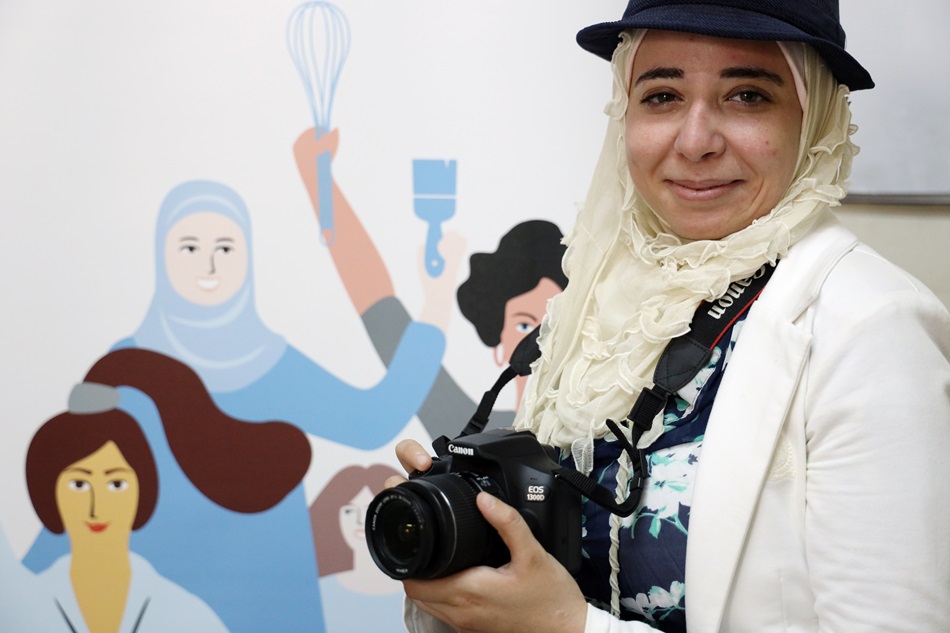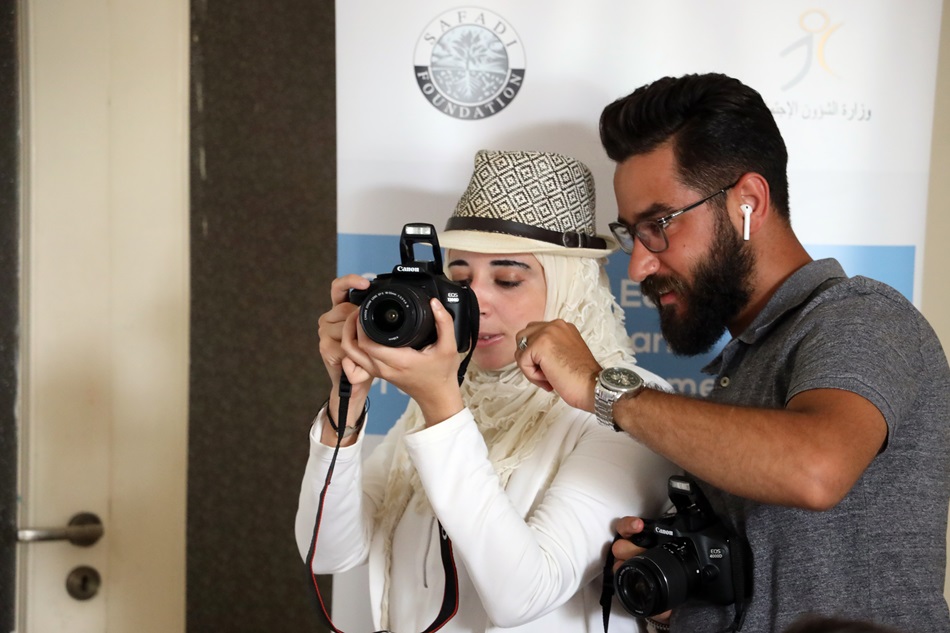In the Words of Ihsan Hatab: “I want to teach blind people how to take photos”
Date:

Ihsan Hatab, from Beirut, was 13 years old when the doctors diagnosed her with Stargardt disease, a genetic eye disorder that causes visual impairment. Now, at 29 years old, and with a Bachelor’s degree in Business Administration, this Lebanese woman is getting ready to launch her own business in photography and filmmaking after joining a photography training supported by UN Women and the Safadi Foundation, with the generous support of the Government of Japan.
“I was born with visual impairment, but at first, not even my family realized my condition. I had diminished eyesight, initially able to see only 10%, which later decreased to 4%. This means that when I am in a room, I can see that someone is sitting in front of me, and I can distinguish most of the colors surrounding me, but this is all I can see. I cannot discern anything else, including a person’s features. If a family member is standing with a group, I’m not be able to recognize them.
My teachers in school used to shame me, constantly asking why I wasn’t looking directly at the board or at them. My classmates bullied me because I had to look off to the side of someone’s face so I could see them better.
Before the age of 10, I thought that everyone was just like me, until one day I picked up a toy camera to look at the color images up close. After I realized I could not see the pictures, I took the glass that magnifies the images and using this I was able to see things around me more clearly. This magnifier helped me with my studies and reading until I was 13.
At school when they found out that I have visual impairment, they asked me to leave because they were not well equipped to deal with people with disabilities. Luckily, I registered the following year at another school where I got a full scholarship and the attention needed from the teachers, and the principle who held awareness sessions on accepting differences.
Then, I studied Business Administration to graduate in 2017 with a GPA of 3.5/4. At college, I only took three credits per semester and I relied solely on my hearing abilities to study. At 23, and within the context of an Exchange Mobility programme at university, I lived a whole year in Portugal by myself, despite challenges. People in the streets and in my class were so helpful; it was an incredible experience.
In the summer of 2019, at an event organized for people with disabilities, I met the Director of the Social Development Center in Tarik Jdide, Beirut. She told me about some trainings provided at the center, including a photography class that really excited me, so I joined.
I was previously married, and my ex-husband was very possessive – which I found draining. Being the only visually impaired person in the training was very empowering. In many ways, the two-month training helped me gain back my strength and positive thinking; I feel that I am still alive and that I can make a difference.

At the training, we learned how to take passport photos and other kind of pictures using different light settings, whether we were at a wedding or in a prison. I use all my senses to do the thing I enjoy the most: taking photos. I stretch my arms to determine the distance between me and my subject, I move closer to objects to distinguish colors and details, and then I take the photo.
Once the training was over, I was offered an internship at a professional photography studio which kept me going during a time where my parents and I were financially struggling, due to the rising economic crisis in Lebanon and my recent divorce. There were days where we could not afford proper meals, so we settled for bread and thyme, but thanks to the money I earned from the internship, I was able to sustain us on most days.
During the time I spent at home due to the COVID-19 lockdown, I had the chance to reflect on my dreams for the future and how to make use of my newly acquired photography skills.
I plan on starting my own socially oriented business, specialized in creating motivational videos. My aim is to produce short movies and participate in competitions. I also want to teach blind and visually impaired people how to take photos. I plan to study filmmaking, as I want to share my story with the world, so that people will look at me and realize that nothing is impossible!”